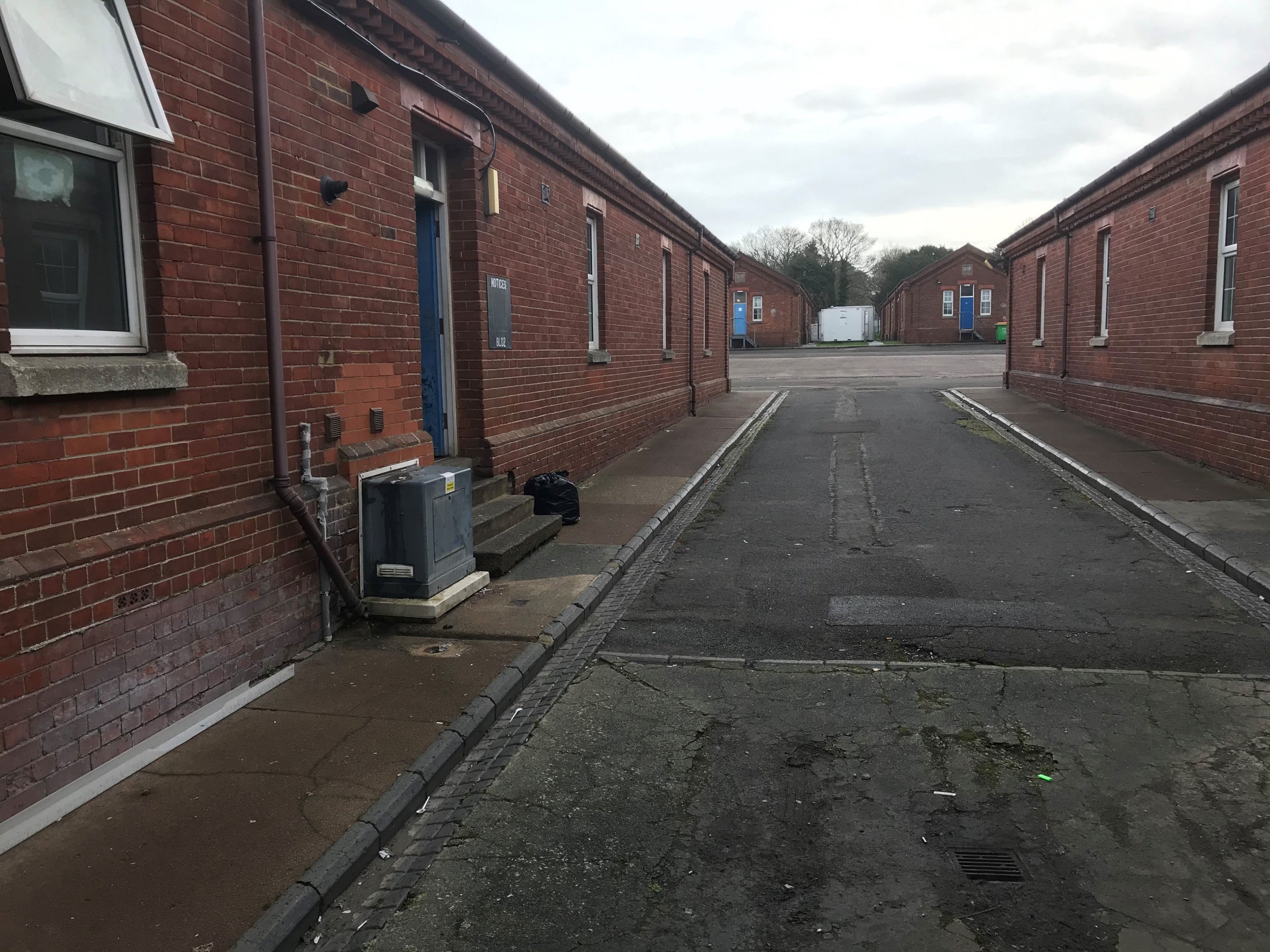Home Office facing legal battle over decision to continue using ‘prison-like’ barracks to house asylum seekers
Exclusive: Lawyers say Priti Patel has failed to address issues High Court ruled made military site unlawful

Your support helps us to tell the story
From reproductive rights to climate change to Big Tech, The Independent is on the ground when the story is developing. Whether it's investigating the financials of Elon Musk's pro-Trump PAC or producing our latest documentary, 'The A Word', which shines a light on the American women fighting for reproductive rights, we know how important it is to parse out the facts from the messaging.
At such a critical moment in US history, we need reporters on the ground. Your donation allows us to keep sending journalists to speak to both sides of the story.
The Independent is trusted by Americans across the entire political spectrum. And unlike many other quality news outlets, we choose not to lock Americans out of our reporting and analysis with paywalls. We believe quality journalism should be available to everyone, paid for by those who can afford it.
Your support makes all the difference.The Home Office is facing a legal battle over its plans to use Napier Barracks as asylum accommodation for four years longer than was initially planned.
Lawyers argue that Priti Patel’s decision to use the former military site until 2026, when planning permission was initially granted until 21 September 2021, breaches the law on the basis that she has failed to rectify issues the High Court ruled earlier this year to be unlawful.
Hundreds of asylum seekers were moved into the camp last September, and remained there despite widespread concerns among doctors, charities and lawyers around Covid safety and mental health support.
A coronavirus outbreak occurred in January, infecting about 200 people. A High Court ruling in June concluded that the site failed to meet a “minimum standard” and that housing asylum seekers there was “unlawful”.
Ms Patel subsequently said she was considering the implications of the judgment and said further transfers of asylum seekers into Napier Barracks had been suspended.
However, on 19 July, the Home Office restarted the process of moving people into the camp. There are currently understood to be 285 residents, and the department is moving more people there with the aim of getting close to the capacity of 308.
On 6 August, residents were informed that there were further cases of Covid-19 in Napier and there are understood to have since been at least six confirmed positive cases.
Lawyers say they have continued to receive regular referrals from residents who are victims of trafficking, victims of torture and unaccompanied minors since the High Court judgment.
The home secretary told MPs last week that her department was planning to extend its use of Napier to 2026, and that it had laid a planning order through a statutory instrument – during recess – which would come into effect on 21 September when the current permission expires.
Ms Patel said conditions at the site had been “significantly improved”, citing more direct engagement by the Home Office with contractors and residents, a limit of 90 days that people can be held there and the introduction of “outdoor seating and tables”.
But lawyers argue the move is unlawful on the basis that the Home Office had not addressed the requirements the court said would need to be complied with if the barracks were still to be used. These included “substantial improvements” in the conditions, fewer residents and people living there for “significantly shorter periods”.
Although the home secretary previously said there would be a 90-day limit on how long asylum seekers were housed at the site, meeting notes from last week seen by The Independent reveal that the Home Office has since admitted that meeting this target “is going to be challenging”.
The legal challenge, brought by Deighton Pierce Glynn solicitors, also argues that the decision to keep the barracks open breaches planning regulations because the Home Office did not consult with the local community or consider the environmental impact of doing so.
It comes as cross-party MPs in the secondary legislation committee brought the home secretary’s decision to the attention of parliament this week, questioning whether the changes the Home Office has made to Napier Barracks were sufficient to bring it up to the required standard.
In a short report published on Thursday, the committee – which is made up of Conservative, Labour and Lib Dem MPs – was critical of the fact the government did not disclose to parliament that the High Court had deemed Napier to be unsuitable.
Maddie Harris, founder of Humans for Rights Network, the claimant in the legal challenge, said: “Napier Barracks is experienced by many held there as a detention camp or prison and was found by the high court to fall short of the minimum standards for asylum accommodation.
“People seeking safety in the UK should be provided with safe, secure, private accommodation with access to help and support within communities, not held in dilapidated army barracks.”
A report published by the All-Party Parliamentary Group on Immigration Detention last week warned of “unsanitary, crowded, prison-like” conditions reported in Napier Barracks and raised concerns about the welfare of those living there and the support available to them.
A Home Office spokesperson said: “The unprecedented and unacceptable rise in dangerous and illegal small boat crossings and the Covid-19 pandemic continue to put pressure on our asylum system.
“As we work to reform the broken asylum system, we must ensure we have sufficient capacity to meet our statutory duty to provide support to genuine and destitute asylum seekers.”
Join our commenting forum
Join thought-provoking conversations, follow other Independent readers and see their replies
5Comments